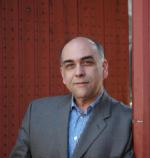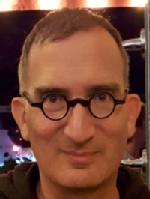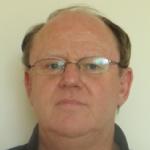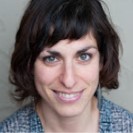MA in World Literature

Study World Literature on one of the UK’s most distinctive courses
Our World Literature MA is unique, drawing on our renowned expertise in theoretically-driven world-literary and postcolonial studies.
This degree will immerse you in the writing and culture of the modern world system. You will take a core module in the foundations of world literature, and then choose from a wide range of optional modules to tackle the most pressing issues in the field. Our readings are in English, but you can also take modules in Warwick’s language departments, and draw on your own linguistic and literary competencies to pursue your research interests.
You will study with a group of ambitious, international scholars and world-leading researchers. Our academic staff work at the intellectual cutting edge of their discipline and will foster this energy in you too. We want you to harness your intellectual ambitions and interests, and bring your own distinct personal experiences and circumstances to bear on your work.
Our warm and vibrant research community is one of the largest in the UK, with around 110 postgraduates each year. We offer a full calendar of seminars, symposiums and conferences, with a busy diary of speakers from around the world. We also offer funding for postgraduate study, and career development support during your time here.
By the end of the course, you’ll be well-positioned for further study or employment with the transferable skills you will develop.
Key facts
Qualification: Master of Arts (MA)
Duration: 1 year full-time, 2 years part-time
Next intake: October 2025
Contact: Christine dot Emmett at warwick dot ac dot uk
Autumn term:
- Research Methods
- Core module: Fundamentals of World Literature
- 1 x 30 CAT modules, assessed by coursework*
Spring term:
- 2 x 30 CAT modules, assessed by coursework*
Spring/Summer terms:
- 16,000 word dissertation (worth 60 CATS)
* You can take one 30 CATS module from outside of the department, including the Institute for Advanced Teaching and Learning (IATL).
Modules on offer for the year 2024–2025 include:
Drama and Performance Theory (Priority to MA in English and Drama Students)
Fundamentals of World Literature (CORE)
Critical Theory Today (Priority to MA in Critical and Cultural Theory Students)
World Literature and the Anthropocene
Critical Environments (Priority to MA in Environmental Humanities Students)
Theory from the Margins: Postcolonialism and the Radical Tradition
The British Dramatist in Society
Core module
Fundamentals of World Literature: One of this module's working theses is that the dominant models of post-war literary studies are no longer tenable and that the "linguistic turn" of High Theory during the last quarter of the twentieth century was a compensatory gesture that delayed, but could not remove, the intrinsic crisis in (comparative) literary studies. Secondly, the module aims to suggest ways in which the current disjunction between cultural studies, modern languages, and postcolonialism can be coherently bridged through comparative analyses of a society's incorporation into the capitalist world-economy.
Optional modules
These vary from year to year, but the list below gives you a flavour of the kinds of topics likely to be open to you:
- Feminist Literary Theory: Consider some of the most important debates and trends in feminist literary theory over the last few decades. This module explores the intersections of academic and popular, intellectual and activist dimensions of feminist literary theory; we also place emphasis on the articulation of feminist literary practice with representations of race, sexuality and class.
- Gothic: Gothic fiction is marked by uncertainties about power, law, class, gender, sexuality and religion, holding up an uncanny mirror to the political and religious anxieties of its times. In this module you will peer into the dark recesses of nineteenth-century Gothic, and through it explore the period’s contradictions and anxieties.
- Petrofiction: Studies in World Literature: Explore the literature of energy and natural resources through the study of various genres from around the world. Here you will take in theatre, cinema, documentary and photography, all with oil and its social meanings at their core, and interpret them within the wider rubric of ‘petroculture’ in order to reveal international patterns in petroleum's form and content.
- The Development of English Drama 1558-1642: Trace the development of the drama of the early modern stage, from the accession of Elizabeth I to the end of the English republic. Investigate how the playing conditions of the time were affected both by the physical resources of the stage and the political contexts in which these works intervened. Take note of early modern literary criticism to discover how playwrights interacted with these ideas in their work.
- Queer Theory and Praxis: This module aims to familiarise students with current theories of gender and sexuality, with a particular focus on literary and historical methodologies. You will learn about the effect of legal, medical, and moral frameworks on the emergence of forms of sexual identity worldwide and the impact of globalization on local forms of sexuality and sexual practice. You will work with Intersectional approaches to literary and cultural study that involve queer theory.
- Drama and Performance Theory: Examine drama and performance theory, by exploring and discussing some of the methodologies, debates and conceptual approaches to drama and performance.
- World Literature in the Anthropocene: Get to grips with the debates surrounding the ‘Anthropocene’ as a way of revisiting conventional interpretive frameworks and categories, including questions of periodisation, comparative methodology and the ‘worlding’ of literary study.
Outside modules
You may also take one 30 CATS module from outside the Department as part of your course.
For example, you might want to study a topic from Warwick Writing Programme, History, Film, Modern Languages, or Philosophy, or the modules offered by the Institute for Advanced Teaching and Learning (IATL).
Dissertation
Alongside your four modules, you also get the chance to pursue your own distinct research interests in the dissertation (16,000 words). This is an opportunity to develop a new idea from one of your modules into something longer. Alternatively, you could write on a subject or a figure that has always fascinated you.
You can write about anything, within the broadly-conceived boundaries of 'world literary studies', although your subject must fall within the interests of an available member of the teaching staff and must be feasible in terms of resources to be accepted.
People often use their MA dissertations as springboards to PhD projects, and have sometimes gone on to publish parts of their work in scholarly journals.
You will attend a series of workshops in the autumn term designed to help shape your general ideas into a feasible proposal. You will submit a full proposal towards the end of the autumn term and be assigned an appropriate supervisor. You will begin preliminary work on your dissertation in spring.
The modules mentioned above may be subject to change. Please read our terms and conditions for more detailed information.
Our main staff involved in this course are listed below. While you're writing your dissertation you might work with any relevant academic in our department.
Course leader
Paulo is Professor of Modern and Contemporary World Literatures, and teaches on the English and Comparative Literary Studies program. He was Associate Professor at Bryant College (USA) and Professor at Utrecht University (Netherlands) before moving to Warwick. In 2011-2012 he was Keeley Fellow at Wadham College, Oxford and in 2013 and 2014 President of the American Portuguese Studies Association. From 2014 to 2017 he served as Director of Reseach. Current projects include a study on Postimperial Europe.
"My research interests focus on writing and culture of the United States; Cultural Studies; literary theory; marxism, world-systems analyses; urban and spatial studies, sociology of religion, television studies, and critiques of mental disease. For a more complete list of publications, see this page. For a curated list of videos from Occupy Wall Street, see this page.
I also have worked as a member WReC (Warwick Research Collective), a group interested in moving beyond older models for literary and cultural studies. WReC published its first collective findings in Combined and Uneven Development: Towards a New Theory of World-Literature (Liverpool UP 2015)."
"My research interests include 'postcolonial' literatures and cultures; postcolonial theory; imperialism, nationalism and anticolonial resistance; modernisation/ capitalist modernity/ modernism; globalisation. World literature, especially when theorised as literature of the modern world-system: distant reading, new theories of literary comparativism. More broadly, modern literature: the novel; literature of Empire; modernist literature and theories of modernism. Literary and cultural theory. Critical social theory, esp. Marxism, the Frankfurt school, the sociology of culture, world-system theory. My current project: Into Our Labours: Work and Literary Form in World-Literature. I have published numerous essays in such journals as Cultural Critique, Diaspora, differences, New Formations, Race & Class, Research in African Literatures, South Atlantic Quarterly, and Textual Practice. Chapters recently in the Oxford Handbook to Postcolonial Studies (ed. Graham Huggan, OUP, 2013) and Global Modernisms (ed. Mark Wollaeger, OUP, 2012); recent essays in Textual Practice (2013), Journal of Postcolonial Writing (2012), Race & Class (2011), and Journal of Commonwealth Literature (2011). Combined and Uneven Development: Towards a New Theory of World-Literature, a book collaboratively written by the Warwick Research Collective -- WReC -- of which I am a member, appeared in 2015.
"I primarily work on post-1945 North American literature. My forthcoming book explores the relationship between post-World War II US novels, urban renewal and suburbanization projects, and the rise of neoliberalism. I am also at work on two shorter projects. One considers the current fascination with, and return to, the social movements and insurgencies of the 1970s across contemporary world literature. A second project turns to the emergence of speculative novels by writers such as Octavia Butler, Marge Piercy, and Samuel Delaney and their relationship to the urban crises of the 1960s and 1970s."
Research expertise
Our department was ranked top 10 in the country in the Research Excellence Framework 2021Link opens in a new window, and the 2021 QS World University Rankings placed us in the top 25 English departments in the worldLink opens in a new window.
Our staff are renowned experts across a broad spectrum of specialisms.
- See our staff profile pages for more information
- See our current PhD and MPhil students to give you a sense of the projects currently being pursued in our department.
Thriving research groups
Our Department is home to several thriving research groups, including Comparative Religions and Literatures (CoRAL) and the Warwick Research Collective (Materialist Studies in World Literature). We have close ties to the Centre for Philosophy, Literature and the Arts, the Eighteenth Century Centre, the Centre for the Study of the Renaissance, the Yesu Persaud Centre for Caribbean Studies, and many other ongoing research projects and collectives.
International conferences
Our Department is regularly home to major national and international conferences, most recently The Descent into the Classical Underworld, Imperial Cultures of the United States, and Peripheral Postcolonialities.
Large library at the heart of campus
The University library's Rare Books and Special Collections include early editions of Smollett, Swift, Scott, and Goethe, and is home to the Modern Records Centre.
Regional and national connections
The University campus is approx. 15 miles from Stratford-upon-Avon, home to the Royal Shakespeare Company and the largest publically-available collection of Shakespeare material in the world. We are also just over an hour from London, home to world-class museums, galleries, and the British Library - the largest library in the world.
A lively graduate culture
You will get a chance to present your work at our annual Postgraduate Symposium. Our graduate students are an important part of our teaching faculty, and for those progressing well with their research, there are opportunities to gain valuable teaching experience across a variety of undergraduate modules.
Work alongside members of the Warwick Research Collective (WReC): Materialist Studies in World Literature
Our department is home to the Warwick Research Collective, a group of researchers from postcolonial, British, and American studies, who for over a decade have worked together on world-systems approaches to the study of world literature. Their critically-acclaimed and collaboratively-written book on the subject, Combined and Uneven Development: Towards a New Theory of World-Literature, proposes a radical new direction for the field.
A postgraduate English degree is a key route into Higher Education, research, and academic careers, which often require postgraduate qualifications. As part of English’s postgraduate community, you will join a department that values its graduate students and encourages them to become part of our thriving research culture.
The average mean salary for all postgraduates from Warwick is £39,500 per annum, and 93.7% are currently in work and/or further study (Destinations of Leavers from Higher Education).
Recent graduate destinations for postgraduate courses:
Barclays Bank; Civil Service Ministry of Justice; Corus Hotels; Coventry University; Deloitte; International Institute for Environment and Development; NewsQuest Media Group; Oxfam; Pan Macmillan; PepsiCo; Royal National Lifeboat Institution; Royal Opera House; Royal Town Planning Institution; TeachFirst; The Burlington Magazine; The Sun; The Times; University of Worcester; V&A Museum; Yale University Press.
Positions of our recent graduates from postgraduate courses:
Account Executive; Business Consultant; Community and Events Fundraising Assistant; Compliance Office; Content Executive; Editorial Assistant; English Teacher; Foreign Rights Assistant; Workshop Director; Writer and Researcher; Innovation and Enterprise Consultant; International and Business Performance Assistant; Journalist; Junior Account Executive; Marketing Manager; Publishing Assistant; Research Analyst; Social Media Analyst; TV Researcher; TV Runner, University Lecturer.
What personal and professional development opportunities and support are available?
- One-to-one academic mentoring support from your dissertation supervisor and personal tutors
- Support from the Centre for Arts Doctoral Research Excellence
- Opportunities to publish in PG student journals (Exchanges and Feminist Dissent)
- Postgraduate student conferences (Postgraduate Symposium, PG Arts Research Festival, and Café Academique, Arts Out: Annual Faculty of Arts Festival)
- Student societies (including the Warwick Literature Society)
- Masters Skills Program, Research Student Skills Program, Transferable Skills Program
- Arts Faculty workshop series
- Project, research and placement funding
Entry Requirements
65% (or equivalent) in an undergraduate degree in English literature or a related degree. All applicants are encouraged to provide a writing sample to demonstrate suitability for the course and in order to be eligible for any available departmental bursaries.
English Language Requirements
Band CLink opens in a new window
IELTS overall score of 7.5, minimum component scores of two at 6.5/7.0 and the rest at 7.5 or above.
Course Fees
See Student Finance
Scholarships
For information about how to fund your master's degree please consult our own graduate funding page and Postgraduate Taught Financial Support page.
Additional Course Costs
Students are expected to buy the set primary texts for each module they study.
Find out more about fees and funding on the University website.
All applicants should upload a writing sample of up to 3,000 words with their application. This will be used for the purposes of admission and for Departmental funding competitions.
We encourage all applicants to apply during the spring. International applicants should apply before June to ensure enough time for visas and processing. We accept home applicants through the summer.
If you have any queries about whether you are in time to apply, please contact the convenor.
See how to apply for a postgraduate course at Warwick:
You may also like to see our Admissions Advice for International Students
What do our students say?
“I have thoroughly enjoyed my MA in World Literature and the intellectually stimulating environment at Warwick. The department is exciting and encourage innovative ways of thinking, with interdisciplinary research and current global affairs at the forefront of discussion. The modules have been wide-ranging, while enabling me to focus on my specific interests along the way. I chose Warwick for the department’s excellent reputation for research in World Literature, and I have not been disappointed — having the opportunity to learn from members of WReC and researchers at the forefront of their field, has been particularly engaging and insightful, challenging my outlook throughout the course.”
Loretta Cooper (MA in World Literature, 2018-19)
“The world-literary approach that Warwick encourages involves an investment into a broad range of interdisciplinary research that differs starkly from anything I studied during my bachelor’s. When I first heard about this MA I was fascinated – and I’m glad I made the right choice. Students have a great deal of flexibility: I was given the freedom to engage with a variety of modules across the department – from Anthropocene studies to Queer Theory. But in each we were reminded of the pressing need to situate literature today within a global history, and to understand texts as part of a world-literary system that makes perfect sense when you consider the economic and cultural conditions of the present moment, but which many traditional English departments overlook. During the course, your work is carefully supported and supervised in small-group teaching, as well as one-on-one, by enthusiastic and skilled academics all dedicated to pushing the boundaries of literary research. Warwick is an exciting place to be studying literature right now.”
Martin King (MA in World Literature, 2018-19)




